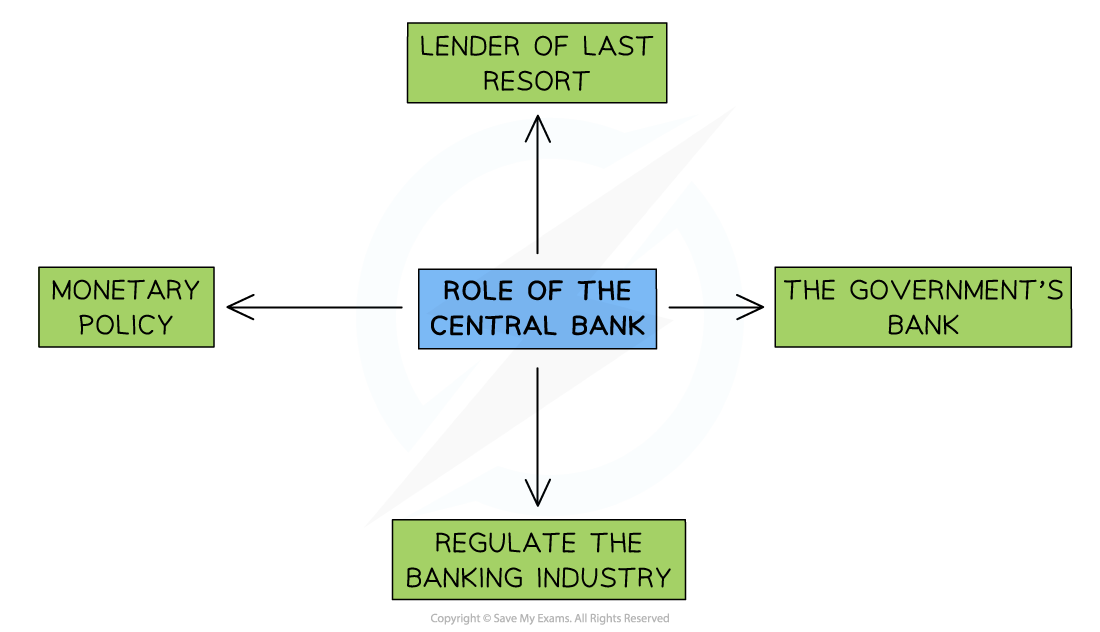Syllabus Edition
First teaching 2025
First exams 2027
Central & Commercial Banks (Cambridge (CIE) IGCSE Economics): Revision Note
Exam code: 0455 & 0987
The role and importance of central banks
A central bank is the main financial institution of a country, responsible for managing the nation’s currency, money supply and interest rates
The Central Bank plays a vital role in maintaining stability in the financial system
The policy tools at their disposal help to meet government economic objectives and create economic growth

What do central banks do?
1. Implement monetary policy
Monetary policy is the adjustment of interest rates and the money supply so as to influence total demand and meet the inflation target
2. Banker for the government
The government sets the annual budget but it is the Central Bank that manages the tax receipts and payments
In 2022 there were 5.7 million public sector workers in the UK who had to be paid by the Central Bank each month
3. Banker to the commercial banks – lender of last resort
Commercial banks are able to borrow from the Central Bank when they run into short-term liquidity issues
Without this help, they might go bankrupt leading to instability in the financial system - and a potential loss of savings for many households
4. Regulation of the banking industry
Regulation is when the government sets rules or laws to control the way consumers and producers behave in a market
The high level of asymmetric information in financial markets requires that commercial banks are regulated in order to protect consumers
The role and importance of commercial banks
Commercial banks are financial institutions that accept deposits from individuals and businesses, and provide loans and other financial services for profit
Roles of commercial banks
Accepting deposits
Provide safe storage for customers’ money
Offer different types of accounts (current, savings, fixed deposit) with varying interest rates
Lending to customers
Provide loans, overdrafts, and mortgages to individuals and businesses.
Generate profit mainly through interest charged on loans
Facilitating payments
Offer payment services such as debit/credit cards, cheque clearing, and online banking
Enable domestic and international transfers (e.g. SWIFT payments)
Providing financial advice
Advise customers on investments, savings and business finance
Foreign exchange services
Exchange currencies for trade, travel or investment
Importance of commercial banks
Encourage saving
They provide a secure place for individuals and firms to save, helping to mobilise funds for investment
Support business growth
Offer credit facilities for expansion, working capital and start‑up capital.
Economic stability
Help circulate money in the economy by channelling savings into productive investments
Facilitate trade
Provide trade finance, letters of credit, and foreign currency for importers and exporters
Convenience
Offer easy access to financial services through branches, ATMs and online banking

Unlock more, it's free!
Was this revision note helpful?
